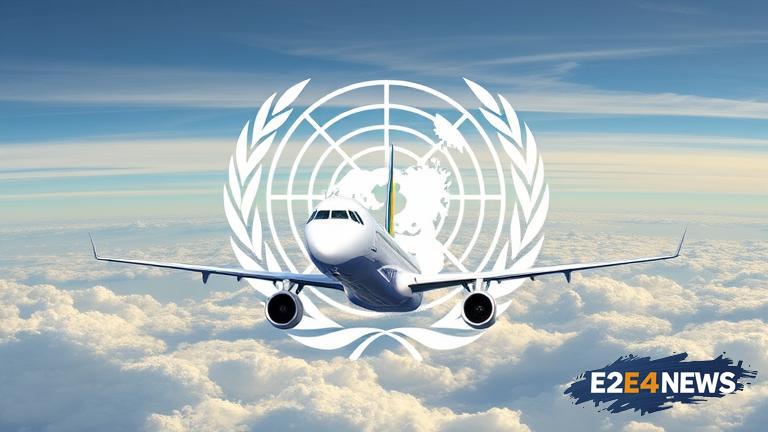The United States has proposed a name change for a United Nations aviation program, citing concerns over the use of the term ‘gender’. The program in question is the UN’s ‘Gender Equality and Women’s Empowerment in Civil Aviation’ initiative. The US has suggested renaming it to ‘Women’s Empowerment in Civil Aviation’, sparking debate on the use of inclusive terminology. The proposal has been met with criticism from some quarters, with opponents arguing that the term ‘gender’ is essential in promoting equality and inclusivity. Proponents of the name change, on the other hand, argue that the term ‘gender’ is often misunderstood and can be seen as exclusionary. The debate highlights the complexities of language and terminology in international organizations. The UN has long been a proponent of gender equality, and the use of the term ‘gender’ is seen as a key aspect of this effort. However, the US proposal has raised questions about the implications of such a name change. Some argue that it could undermine efforts to promote gender equality, while others see it as a necessary step to ensure that the program is more inclusive. The proposal has also sparked a wider debate on the use of language and terminology in international organizations. The UN has a long history of promoting gender equality, and the use of the term ‘gender’ is seen as a key aspect of this effort. The organization has implemented various initiatives aimed at promoting gender equality, including programs to increase the participation of women in civil aviation. The US proposal has raised questions about the implications of such a name change, with some arguing that it could undermine these efforts. Others argue that the term ‘gender’ is often used in a way that is exclusionary, and that a name change could help to promote greater inclusivity. The debate highlights the complexities of language and terminology in international organizations, and the need for careful consideration of the implications of such changes. The US proposal is seen as part of a broader effort to promote women’s empowerment in civil aviation, and to increase the participation of women in the industry. The proposal has been met with support from some quarters, with proponents arguing that it is a necessary step to ensure that the program is more effective in promoting women’s empowerment. However, opponents argue that the name change could have unintended consequences, and that it is essential to consider the potential implications of such a change. The debate is ongoing, with no clear resolution in sight. The US proposal has sparked a wider debate on the use of language and terminology in international organizations, and the implications of such changes. The UN has a long history of promoting gender equality, and the use of the term ‘gender’ is seen as a key aspect of this effort. The organization has implemented various initiatives aimed at promoting gender equality, including programs to increase the participation of women in civil aviation. The US proposal has raised questions about the implications of such a name change, with some arguing that it could undermine these efforts. Others argue that the term ‘gender’ is often used in a way that is exclusionary, and that a name change could help to promote greater inclusivity. The debate highlights the complexities of language and terminology in international organizations, and the need for careful consideration of the implications of such changes. The proposal has also sparked a debate on the role of language and terminology in promoting social change. Some argue that language and terminology are essential in promoting social change, and that the use of inclusive language is crucial in promoting equality and inclusivity. Others argue that language and terminology are not as important as other factors, such as policy and practice. The debate is ongoing, with no clear resolution in sight. The US proposal has sparked a wider debate on the use of language and terminology in international organizations, and the implications of such changes. The UN has a long history of promoting gender equality, and the use of the term ‘gender’ is seen as a key aspect of this effort. The organization has implemented various initiatives aimed at promoting gender equality, including programs to increase the participation of women in civil aviation. The US proposal has raised questions about the implications of such a name change, with some arguing that it could undermine these efforts. Others argue that the term ‘gender’ is often used in a way that is exclusionary, and that a name change could help to promote greater inclusivity. The debate highlights the complexities of language and terminology in international organizations, and the need for careful consideration of the implications of such changes.




